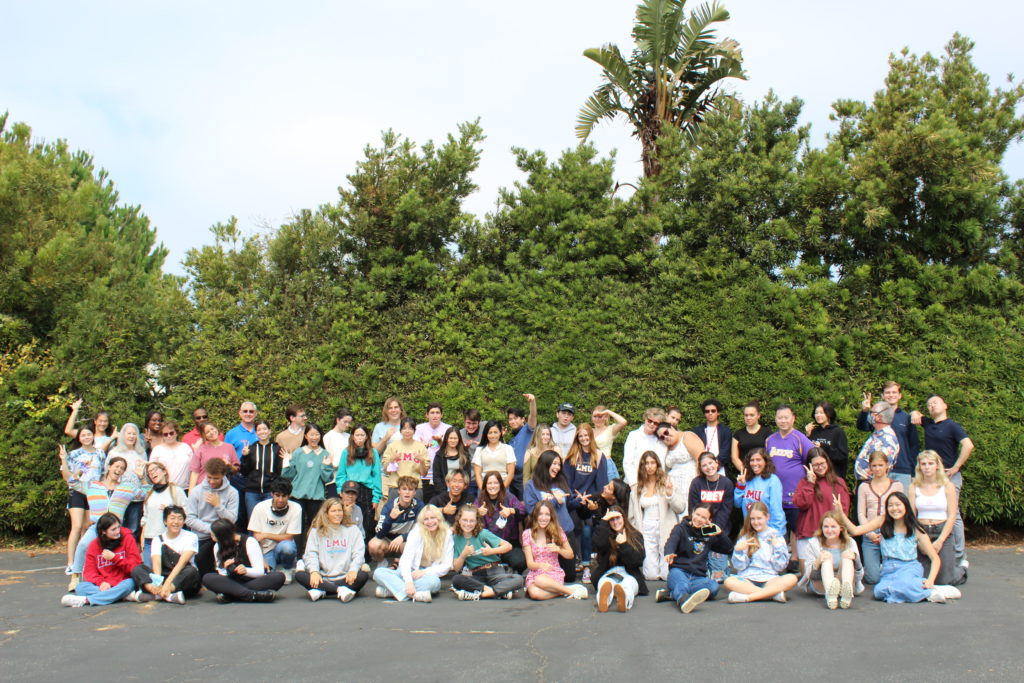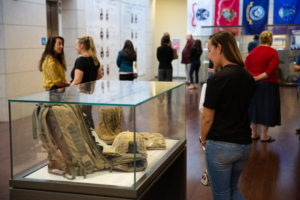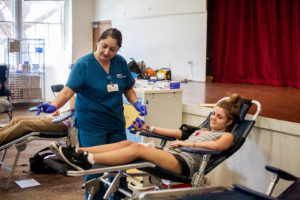STUDENT PSYCHOLOGICAL SERVICES | We find ourselves amidst challenging times, as a country and an LMU community. It may be difficult to understand, process and struggle through painful issues such as systemic racism and white supremacy. The disproportionate impact of COVID-19 on the African American community has brought to light how a long history of inadequate health care, access and economic opportunity renders a community vulnerable, especially during a health crisis as large as the pandemic we find ourselves. To further exacerbate the disproportionality of an endemic crisis in the African American community, we then witnessed the murders of Ahmaud Arbery, Breonna Taylor, and George Floyd. The persistence of these factors, over an extended amount of time, can lead to what is known as racial trauma.
Recent current events can trigger these traumas and create new ones. Racial trauma can express itself in many ways, including anger, sadness, fear, exhaustion, grief, numbness, or disconnection. Racial trauma must not be overlooked and must be treated with care, compassion and a cultural-consciousness competency. Student Psychological Services provides a place, space and professionals to help support healthy resilience building and compassionate healing.
Poet and author Maya Angelou said, “We may encounter may defeats but we must not be defeated.” Traumatic emotions and feelings can affect daily life, and finding ways to process those feelings is important. The following tips can help you deal with persistent incident racial trauma:
- Be kind to yourself and allow yourself the space to process these emotions;
- Minimize news and social media as it can sometimes be re-traumatizing and lead to even more difficult emotions;
- Discuss your feelings with people in your life who you consider allies and will really validate your experience;
- Set boundaries with anyone you feel is invalidating your experience;
- Maintain a consistent self-care routine (i.e., yoga, exercise, walking, and meditation);
Do you need support to help process your emotions and feelings during these challenging times? Get to know Kristin Howard, L.M.F.T., and Tracy Shaw, Ph.D. from Student Psychological Services.
 Tracy Shaw, Ph.D., has over 30 years of extensive training and expertise in human behavior and sports psychology. She has served as a clinical and sports psychologist to many collegiates, Olympic and professional athletes in the U.S. and internationally. Shaw is the assistant director and training coordinator of the Post-Doctoral Fellowship Program. She is a licensed psychologist in California and a past president of the Southern California Association of Black Psychologists. Shaw’s primary areas of specialization include multicultural counseling and diversity issues. As a clinical psychologist, she enjoys working with young women and men in self-reflection, relationship building, co-dependency issues, grief and loss concerns, separation and letting go issues, and depressive and anxiety disorders. In Los Angeles, Shaw is a mental health expert for “African-centered people,” due to her frequent appearances on, Stevie Wonder’s KJLH 102.3 in Inglewood, California.
Tracy Shaw, Ph.D., has over 30 years of extensive training and expertise in human behavior and sports psychology. She has served as a clinical and sports psychologist to many collegiates, Olympic and professional athletes in the U.S. and internationally. Shaw is the assistant director and training coordinator of the Post-Doctoral Fellowship Program. She is a licensed psychologist in California and a past president of the Southern California Association of Black Psychologists. Shaw’s primary areas of specialization include multicultural counseling and diversity issues. As a clinical psychologist, she enjoys working with young women and men in self-reflection, relationship building, co-dependency issues, grief and loss concerns, separation and letting go issues, and depressive and anxiety disorders. In Los Angeles, Shaw is a mental health expert for “African-centered people,” due to her frequent appearances on, Stevie Wonder’s KJLH 102.3 in Inglewood, California.
 Kristin Howard, L.M.F.T., has been part of SPS since 2018. She earned her master’s degree from Pepperdine University in 2011. Her graduate training and post-graduate work included providing therapy to youth and adults in low-income neighborhoods. Howard has also provided telehealth therapy on Talkspace for individuals with a variety of issues. She currently provides therapy part-time at a group private practice focusing on treating anxiety disorders, OCD, and depression. Her professional interests include individual and group therapy, interpersonal issues, stress management, anxiety, OCD, depression, Cognitive Behavioral Therapy, historically marginalized populations, identity development, and adjustment issues. In her spare time, Howard enjoys yoga, traveling, movies, music, and quality time with family and friends.
Kristin Howard, L.M.F.T., has been part of SPS since 2018. She earned her master’s degree from Pepperdine University in 2011. Her graduate training and post-graduate work included providing therapy to youth and adults in low-income neighborhoods. Howard has also provided telehealth therapy on Talkspace for individuals with a variety of issues. She currently provides therapy part-time at a group private practice focusing on treating anxiety disorders, OCD, and depression. Her professional interests include individual and group therapy, interpersonal issues, stress management, anxiety, OCD, depression, Cognitive Behavioral Therapy, historically marginalized populations, identity development, and adjustment issues. In her spare time, Howard enjoys yoga, traveling, movies, music, and quality time with family and friends.
SPS staff are available remotely to provide telephone and/or video conferencing for students. If interested in services, email us at SPSAdmin@lmu.edu or phone our office at 310.338.2868.



